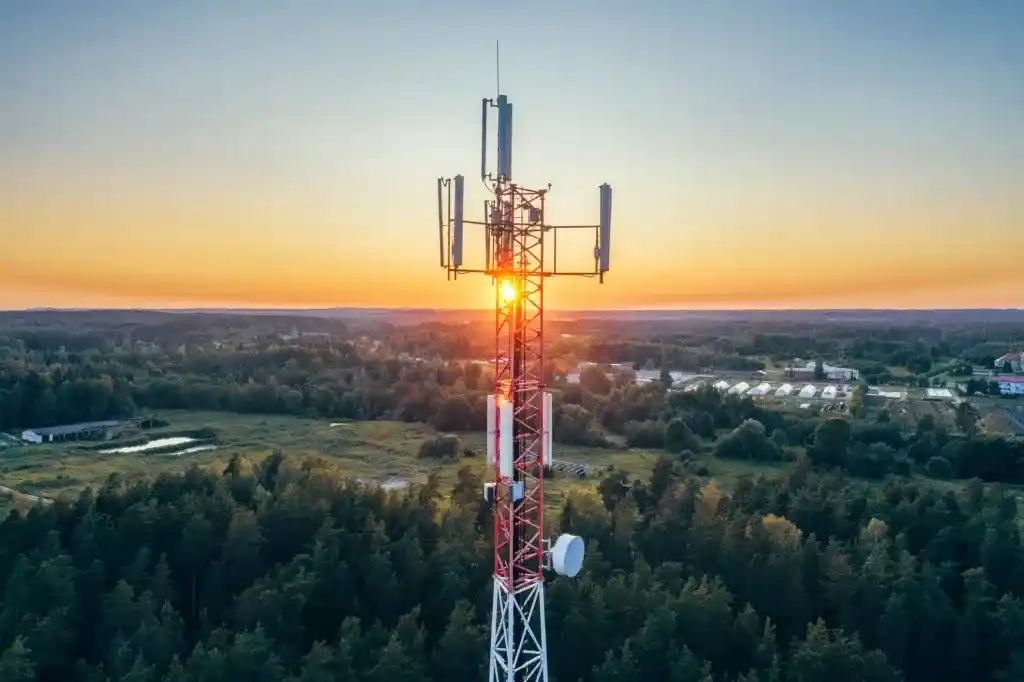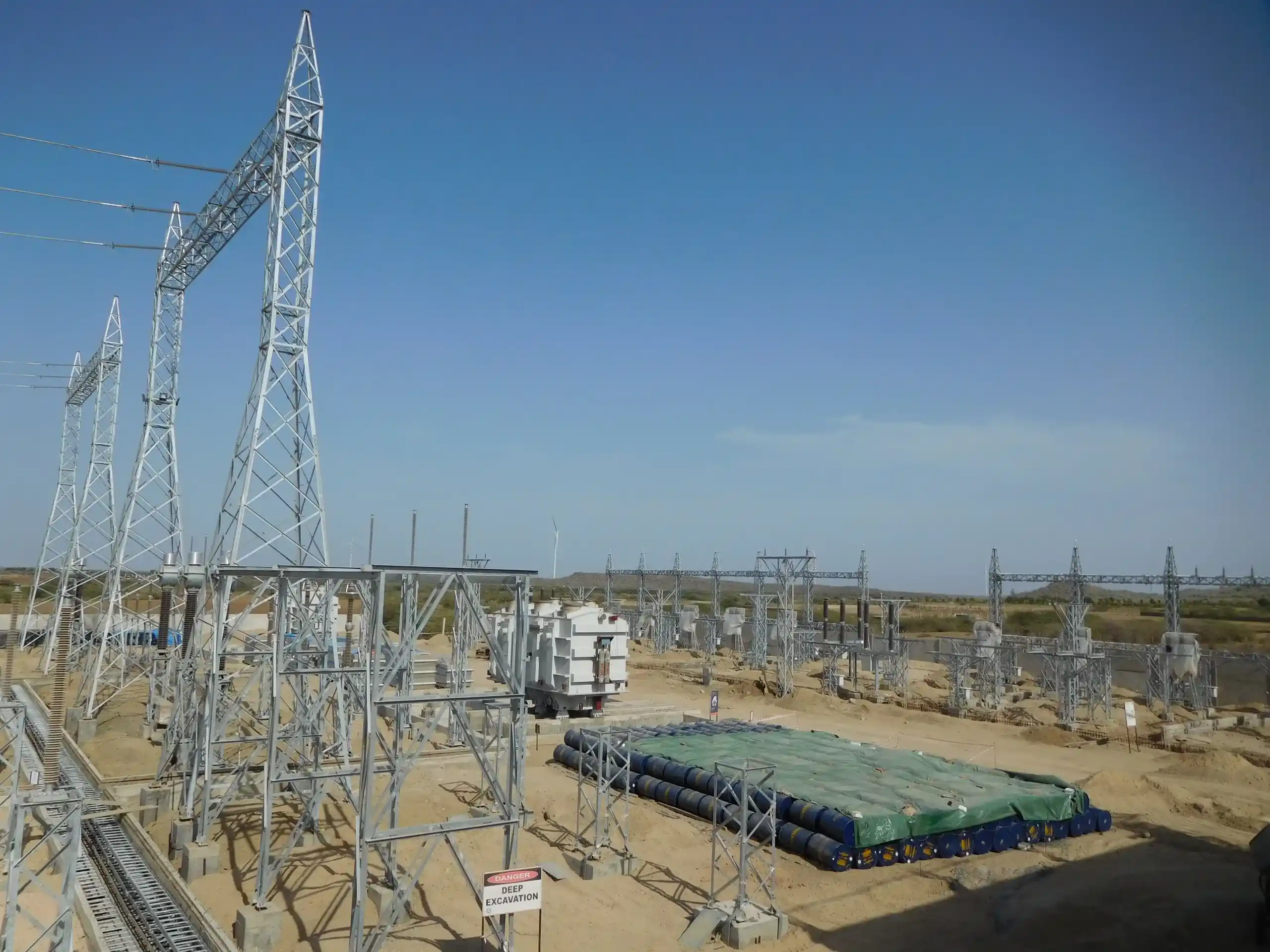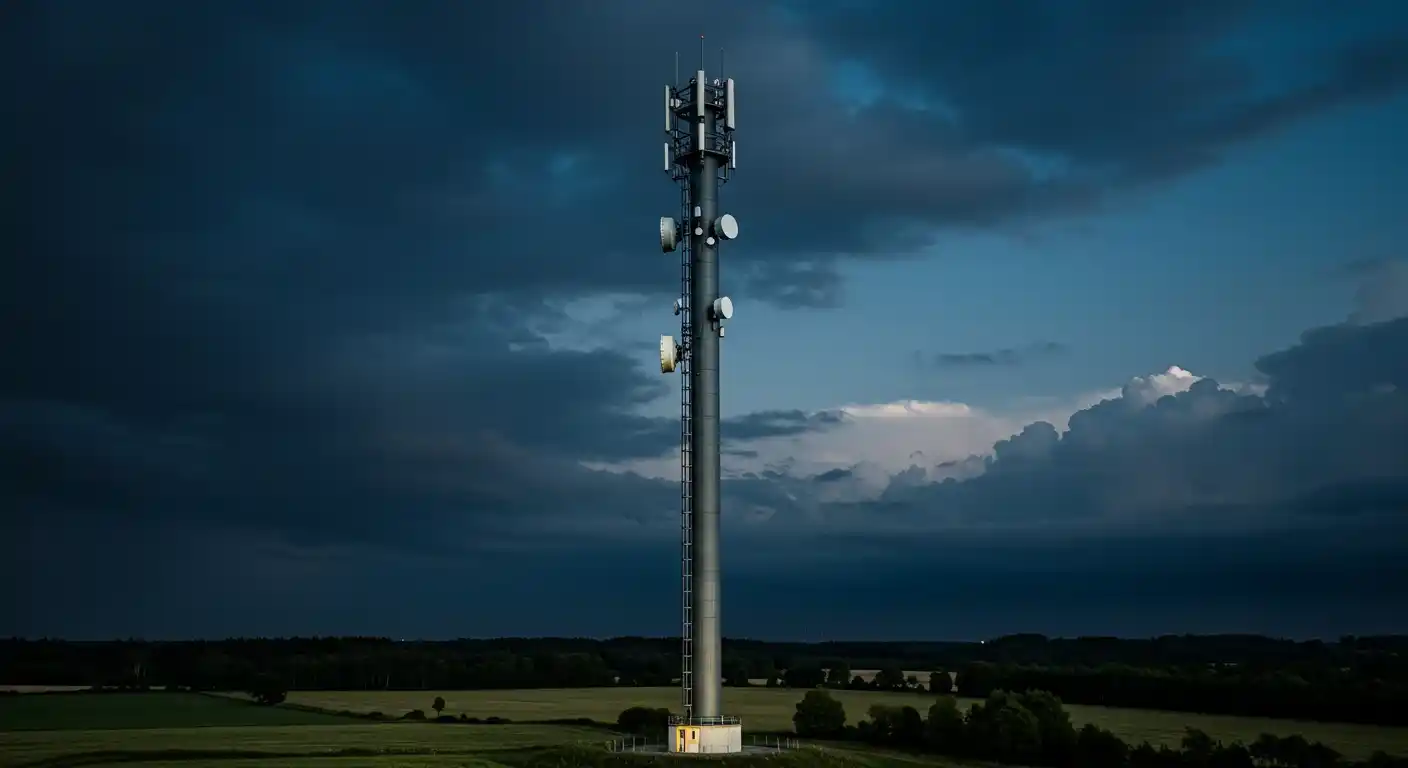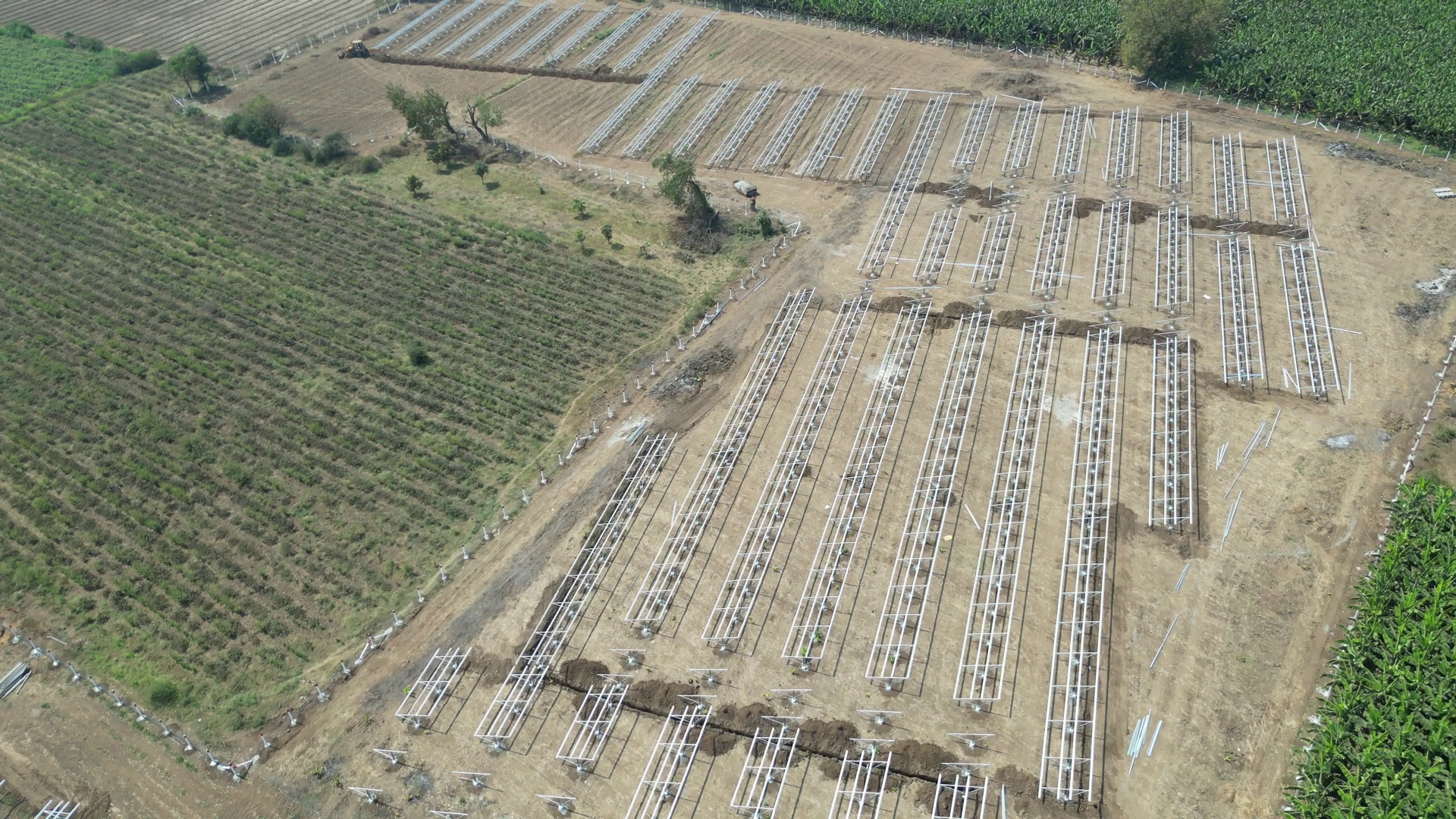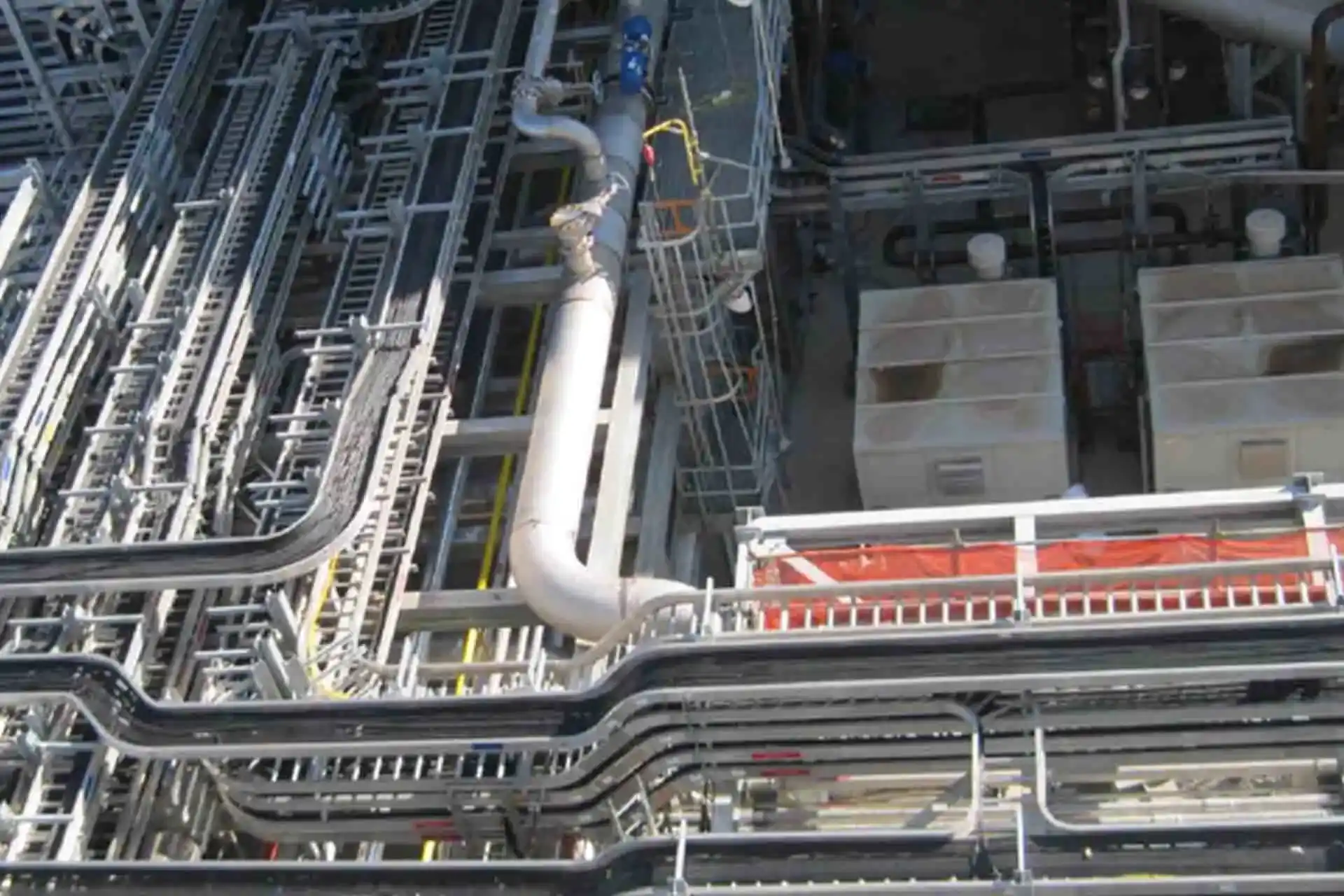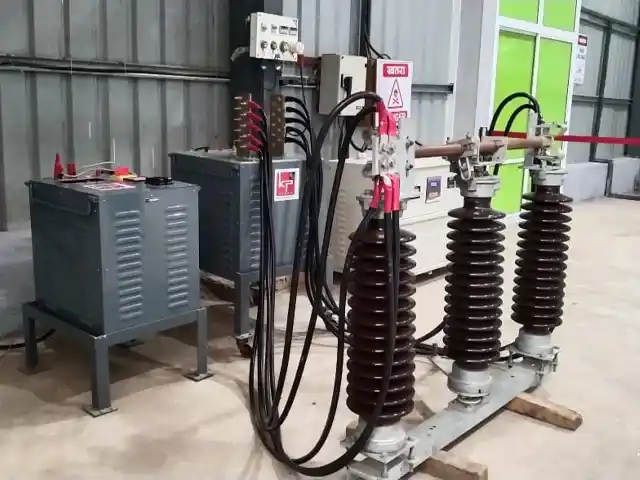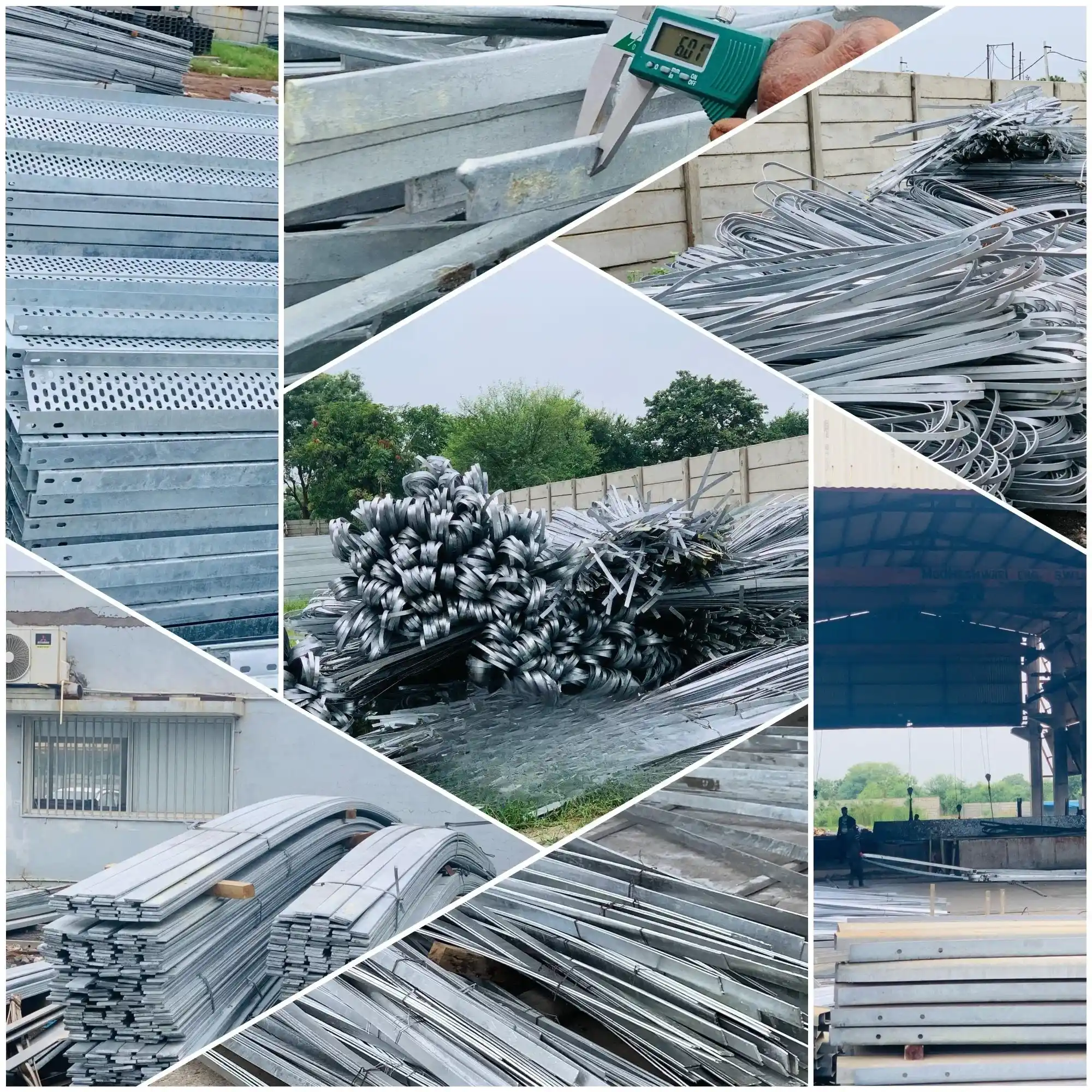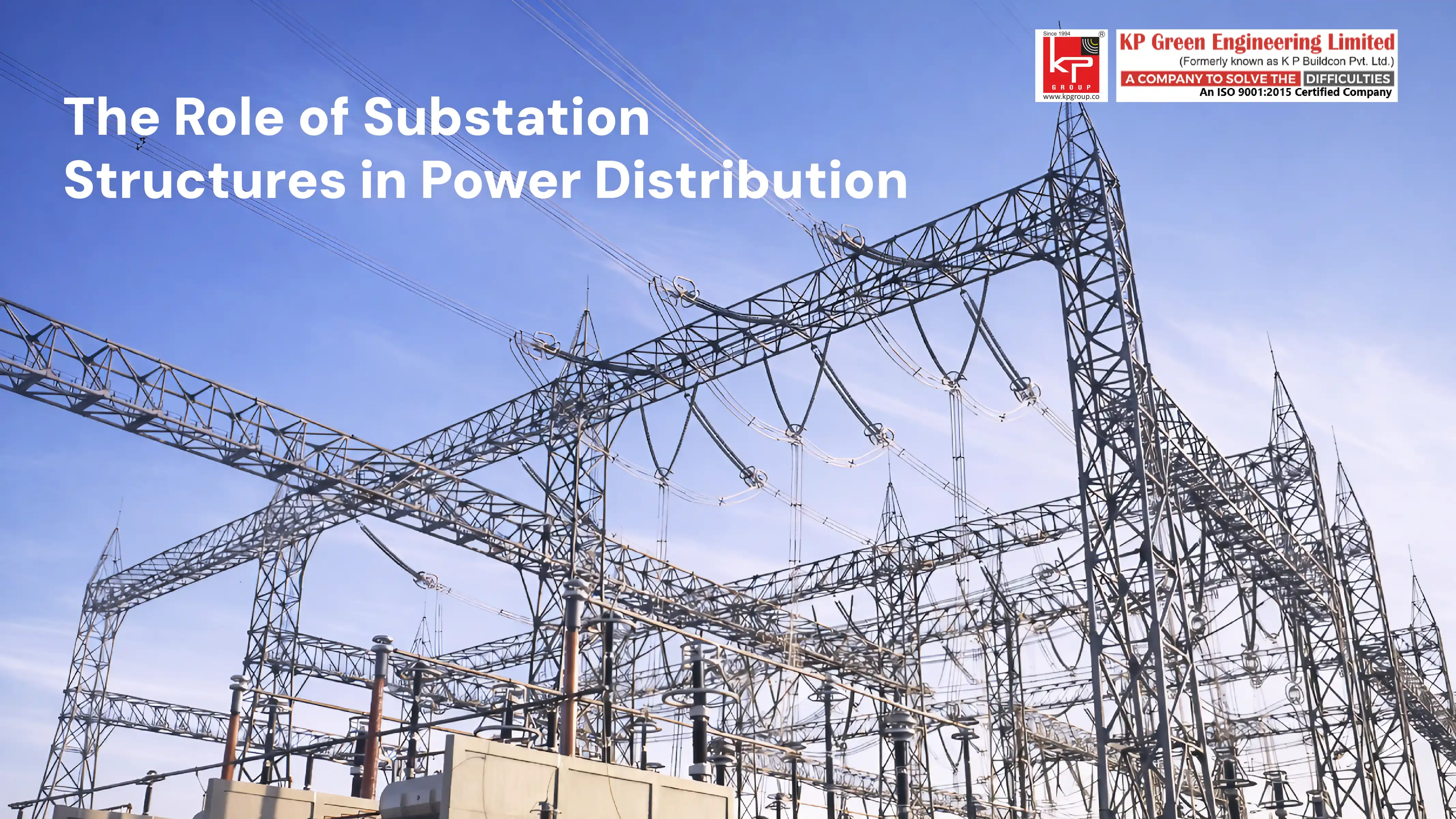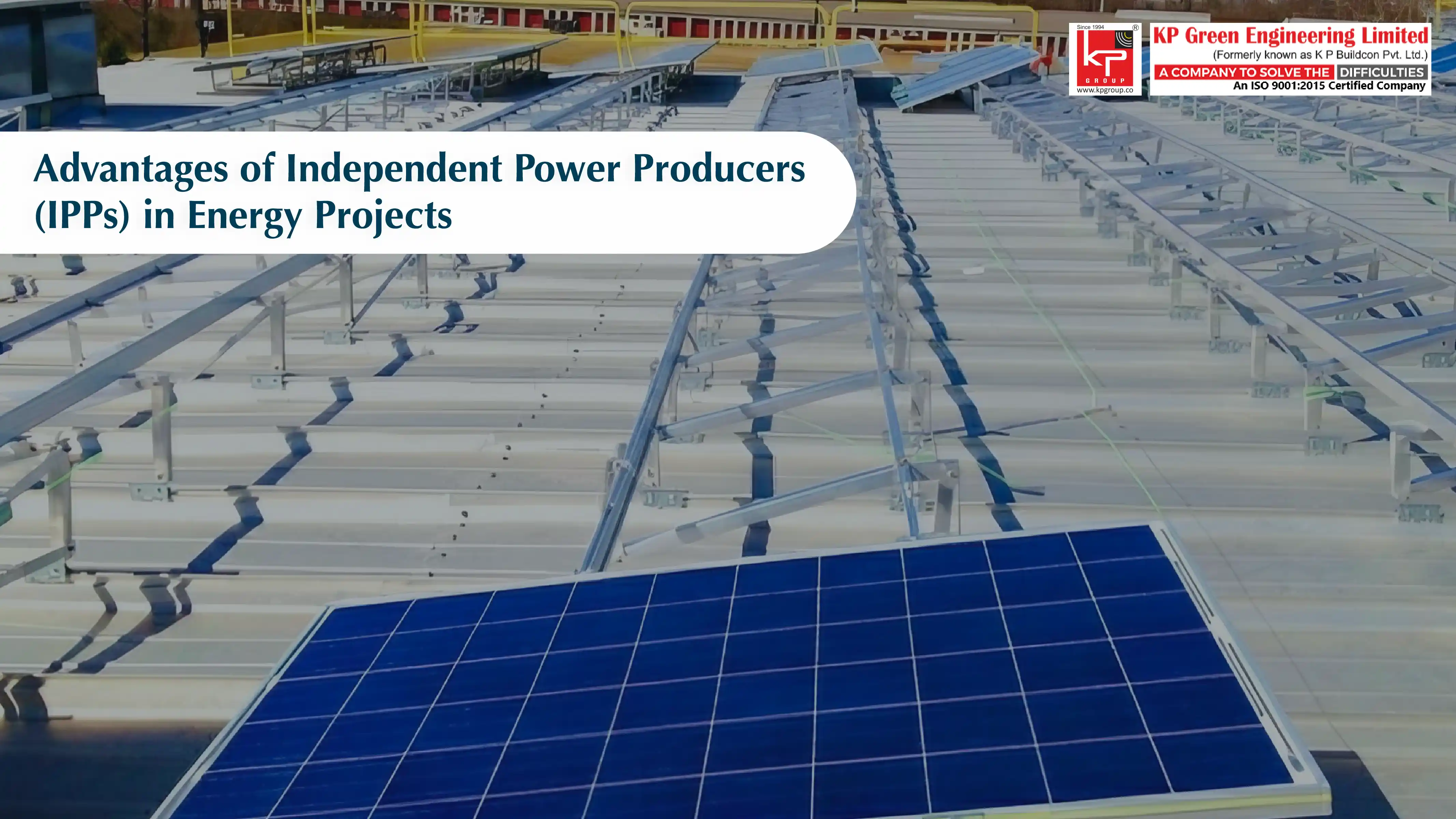
Advantages of Independent Power Producers (IPPs) in Energy Projects
The global energy landscape has witnessed a remarkable transformation over the past few decades, with Independent Power Producers emerging as pivotal players in driving innovation, efficiency, and sustainability. These private entities have revolutionized how electricity is generated, distributed, and consumed worldwide, offering compelling alternatives to traditional state-owned utilities and monopolistic energy systems.
While governments in every country are looking to modernize their energy infrastructure and meeting the increasing demands on electricity, Independent Power Producers have become vital to exploiting the advantages of public sector limitations while effectively moving private sector efficiencies into the gap. IPPs do much more than produce electricity; they are also technology innovators, economic drivers, and environmental stewards.
What is an Independent Power Producer (IPP)?
An Independent Power Producer describes a non-government, non-regulated company that owns or operates an electricity generation facility and sells power to utilities, government entities, or directly to end-users. Basic utilities can be described as vertically integrated companies that deal with electricity generation, transmission, and distribution, while an Independent Power Producer acts exclusively as a power generation company providing services to other entities. The Independent Power Producer model is specialized and based on an efficient operation, which allows this company to focus solely on generating power.
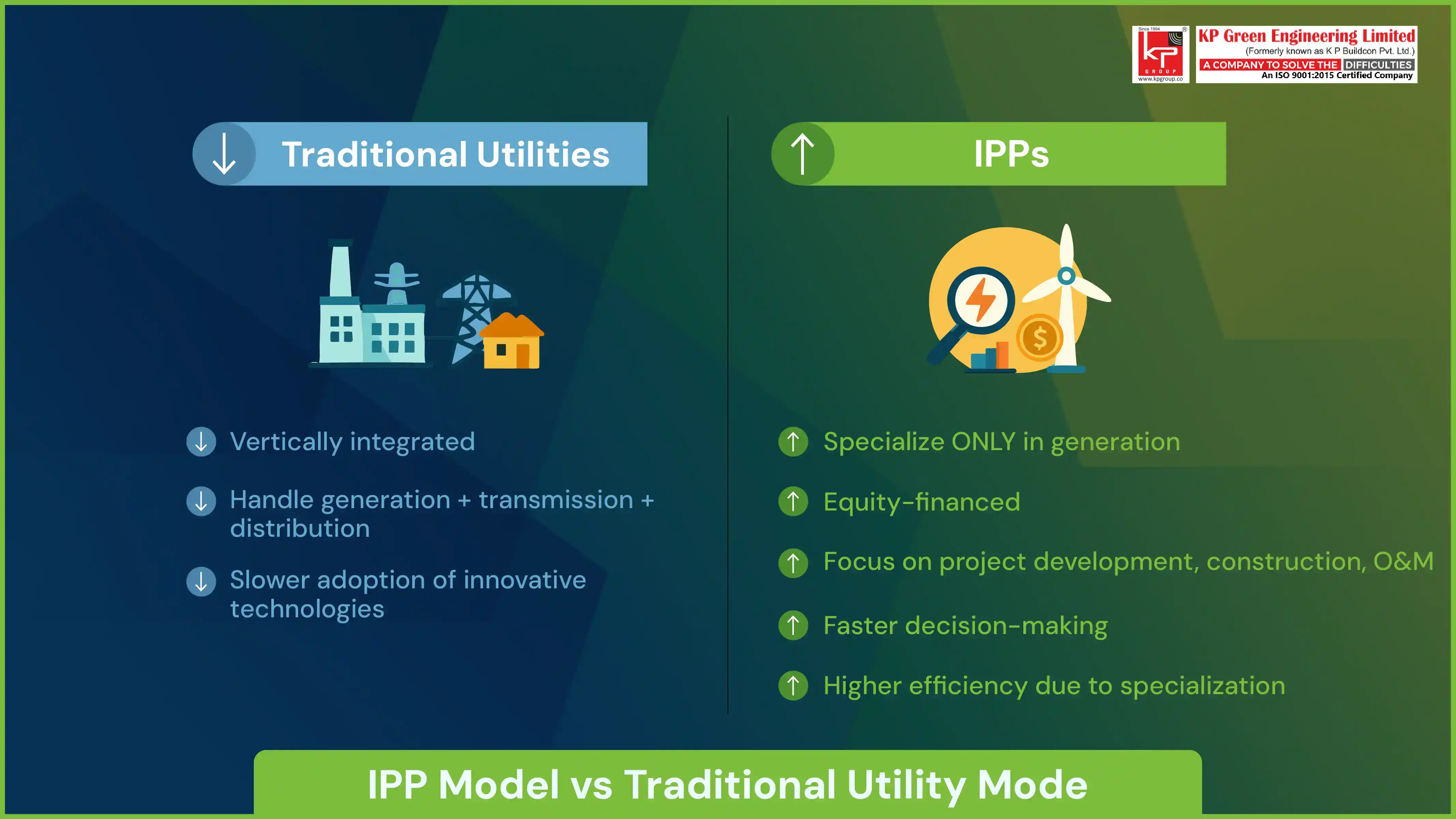
Defining the IPP Model and Operational Focus
The IPP model centers around the concept of specialization, wherein businesses focus their talent and capital on power generation, and not other utility functions. This specialization leads to increased efficiency, investment in innovative technologies, and flexibility in adapting to the power markets. Independent Power Producers usually do equity financing, build generation facilities, and contract to sell the electricity generated in the long term.
In general, independent power producer's (IPP's) operational model includes project development, construction management, operations and maintenance and performance enhancement. Prime contractors can alignment their specialized knowledge of independent power producers to achieve efficiency and cut costs, making these independent contractors appealing to government that wish to increase energy capacity without significant public investment.
The Role of Power Purchase Agreements (PPAs)
Power purchase agreements with IPPs serve as the foundation of the independent power producer framework. These contracts outline the terms of sales of electricity from the IPP to buyers, generally ranging from 15-25 years. For IPPs, PPAs provide certainty of revenue, while buyers receive certainty of price for energy supply.
PPAs define important aspects of the arrangement including pricing of electricity, timing of delivery, performance obligations, and risk sharing. The PPA agreements’ structures have adapted over time to include the various payment mechanisms such as capacity payments, energy charges, and performance bonuses to the benefit of buyers, sellers, and others in a transaction.
Historical Context: The Rise of IPPs with Market Liberalization
The emergence of Independent Power Producers (IPPs) coincided with the liberalization movement of the global energy market that began in the 1980s. National governments began to recognize that by introducing some sort of competition and private sector involvement, they would achieve greater efficiency, lower costs, and more rapid development of new capacity in the energy industry. This was a considerable shift away from centralized, state-level control over energy systems to more distributed, market-driven generation sources.
Liberalized markets gave IPPs the ability to compete purely on the basis of merit in order to promote industry innovation and savings. The role of Independent Power Producers expanded tremendously as governments began to see that IPPs could help to reduce energy shortages, improve service quality, and provide regulated private sector investment in critical infrastructure investment.
Core Advantages IPPs Bring to the Energy Sector
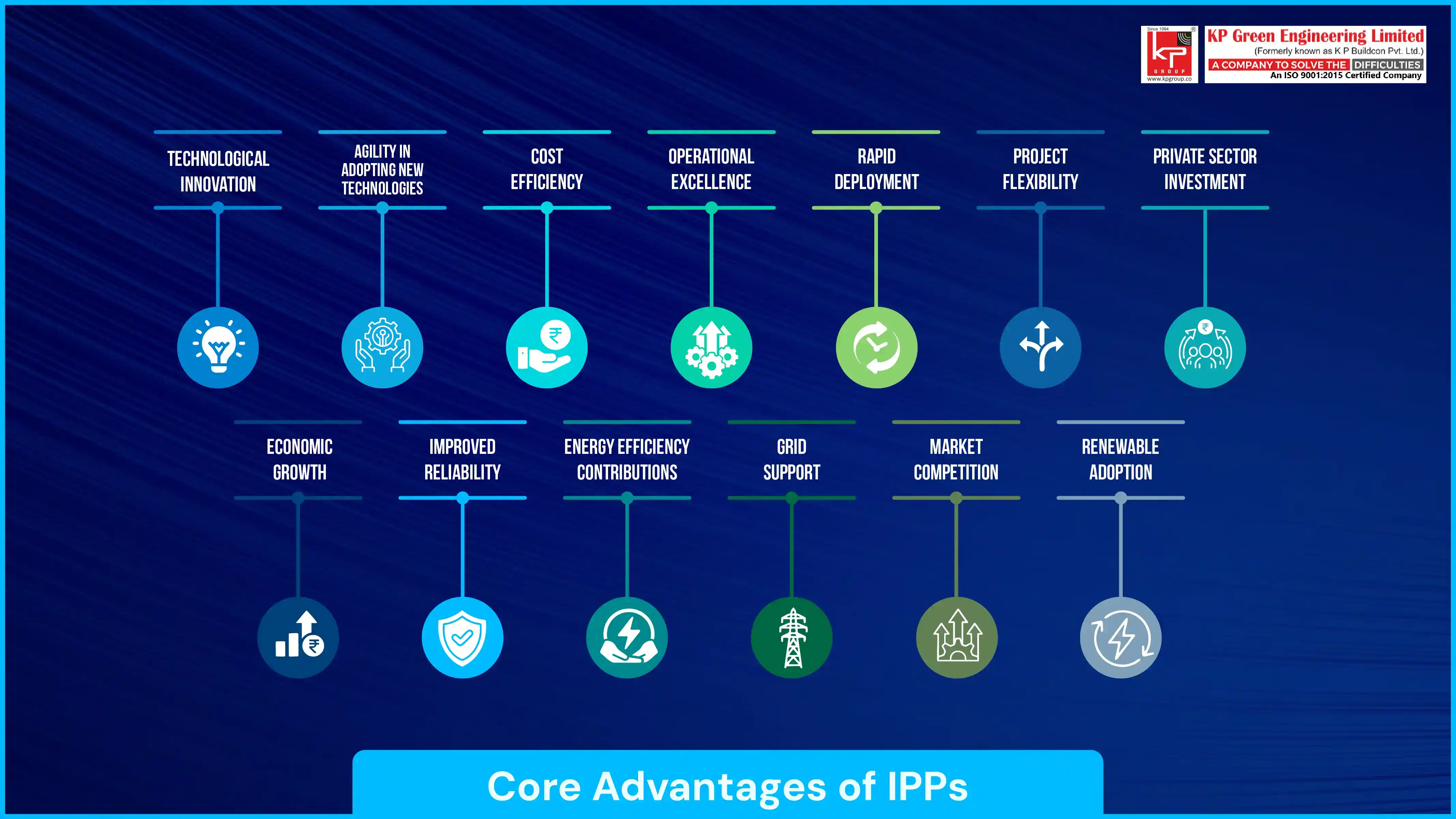
Driving Technological Innovation and Adopting Advanced Solutions
Today, independent power producers (IPPs) are at the forefront of innovation and technology change in the energy space, continually pushing the boundaries of what is feasible in the generation of electricity and a related advancement in that process. The relatively small size of many IPPs, and their competitive nature, means that they need to test sometimes radical and extreme innovative options to create value through a reduction in environmental footprints or an enhancement in overall performance and efficiency.
Agility in Implementing New Technologies (e.g., Smart Grids, Efficient Turbines)
Competitiveness drives independent power producers (IPPs) to regularly embrace new technologies to remain competitively viable. They enthusiastically embrace new technological advances including advanced turbine configurations, smart grids, artificial intelligence for predictive maintenance, and storage technologies. This degree of technologicial dexterity leads to the embrace of innovative technologies that otherwise would delay the adoption of traditional utility deployment by multiple years.
IPPs are heavily investing their time and money in research and development and collaborating with technology providers to assess new advances and optimize current technology systems. The fact that IPPs are resolutely and unapologetically embracing new technologies, is accelerating the entire energy industry toward innovative solutions not only for the IPPs but the energy ecosystem as a whole.
Enhancing Cost Efficiency and Operational Excellence
Benefits of Independent Power Producers prominently include their superior cost efficiency compared to traditional utilities. IPPs operate with lean organizational structures, optimized processes, and performance-driven cultures that minimize waste and maximize productivity.
Rapid Deployment Capabilities and Project Flexibility
IPPs move quickly through project development and execution and often complete power projects faster than traditional utilities. With simplified decision-making, specialized contractors, and a focus on project delivery, they can rapidly add capacity in response to growing energy needs.
This flexibility is also true for determining the project size, technology options, and optimization of locations, allowing IPPs to develop solutions that accommodate market needs and circumstances. This flexibility helps address emergency capacity needs and support economic development needs.
Fueling Economic Growth and Attracting Private Investment
The IPP model draws in significant private sector investment into the energy sector, decreasing the financial burden on governments while expediting infrastructure development. Such private investment contributes to economic growth through job creation, technology transfer, and industrial development.
The Impact of Private Capital Infusion in Energy Infrastructure
Private investment through Independent Power Producers (IPPs) is not simply investment capital; it also brings international expertise, advanced technologies and global best practices.
From the standpoint of the public sector, this infusion of capital, loan financing, and technical expertise enhances energy infrastructure (both the process and the overall quality) and reduces public sector financial risk.
The competitive nature of private investment allocates capital efficiently, flowing to the most attractive and viable projects which yields the best economic return on energy investments.
Improving Energy Efficiency and Reliability
IPPs contribute significantly to overall energy system efficiency through modern equipment, optimized operations, and performance-based incentives. Their commercial orientation drives continuous improvement in efficiency metrics and reliability indicators.
Contribution to National Energy Efficiency Targets (e.g., India's PAT Scheme)
Several IPPs play a crucial role in fulfilling national energy efficiency objectives through leading-edge technologies and operating practices that go beyond regulatory compliance. Their engagement in initiatives such as India's Perform, Achieve and Trade (PAT) scheme provide evidence of their emphasis on sustainability while operating in a commercial setting.
The efficiency improvements that IPPs produce support countries in meeting international obligations to reduce energy intensity and carbon emissions in line with global responses to climate change.
Flexibility in Power Production and Grid Support
IPP (Independent Power Producer) plants these days possess a large flexibility to operate equally quickly in respect to changing demand and grid requirements. This flexibility is very important to assist with the stability of the grid, especially as resources increase their penetration of renewable energy and this requires balancing and back-up power.
IPP's use technology that help continue the sustainability of the grid such as frequency regulation, voltage support and emergency response technology, which increases the overall reliability and resilience of the electricity power system.
Promoting Competition and Diversification in the Energy Market
Independent Power Producers (IPPs) introduce beneficial competition into energy markets to innovate, reduce costs, and enhance service. This will ultimately benefit the consumer through reduced prices and service enhancements.
Market diversity reduces dependence on single suppliers or technologies, enhancing energy security and resiliency. The proliferation of generation sources and business model provisions will help create a better and more flexible energy system.
Accelerating the Adoption of Renewable Energy Sources
IPPs in renewable energy projects are vital players in the transition towards global reliance on clean energy sources. Their skills in project development, financing, and operations make them ideal collaborators in deploying large scale renewable energy options.
The commercial incentives for IPPs align well with the economics of renewable energy in which advancements in technology and operational efficiency create returns. These commercial incentives lead to innovation and lower costs in renewable energy technologies.
IPPs in Action: Sector-Specific Contributions
The Role of IPPs in Conventional Power Generation (e.g., Natural Gas)
Independent power producers (IPPs) continue to remain significant players in conventional energy generation, and especially with flexible electric generation technologies like natural gas, that can closely sync with renewables and allow for higher penetration of renewable resources in the generation mix. The efficiency of generation and the online use of advanced technologies will increase the worth of traditional resources which will also allow for even lower adverse environmental effects.
Much of the advanced traditional generation facilities are owned and operated by IPPs, and they will use lower emissions control systems, higher efficiency technologies, and more operational flexibility to support grid stability and integrate renewable energy.
IPPs as Key Enablers for Wind, Solar, and Hydro Projects
Independent Power Producers in India and has emerged as a leaders in renewable energies globally, drawing on their project development capabilities and risk management expertise to offer substantial clean energy projcts.
Specializing in renewable technologies allows IPPs to customize site selection , technology configuration and operational strategies effectively to the wind, solar and hydro resource to achieve optimal end use energy yield and economic return.

Discover how IPPs are powering the future of energy.
Read more to understand their impact!
Contact Us Now
Considerations and the Future Outlook for IPPs
Challenges for Independent Power Producers include regulatory uncertainties, financing complexities, grid integration issues, and evolving market structures. However, the growth of Independent Power Producers globally continues as governments recognize their essential role in achieving energy security, sustainability goals, and economic development objectives.
IPPs can consider future opportunities through investments in energy storage integration, digitalization initiatives, hybrid renewable systems, and entering new markets such as carbon trading and ancillary services. As IPPs work towards integrated energy offerings, their developing role encapsulates the essence of international energy transition.
Conclusion
Independent Power Producers (IPPs) have transformed the global energy sector by combining innovation, cost efficiency, and private investment to deliver sustainable and reliable power solutions. Their role in driving renewable energy adoption, improving grid flexibility, and catalyzing infrastructure growth makes them indispensable partners in achieving a cleaner and more resilient energy future.
As IPPs continue to expand their portfolios into solar, wind, and hybrid energy systems, the integration of advanced engineering solutions such as Solar Module Mounting Structures plays a critical role in enhancing performance, durability, and overall project efficiency. Together, these advancements are redefining how power is generated, managed, and distributed for generations to come.
Frequently Asked Questions:
About Us
KP Green Engineering Ltd. provides complete engineering and steel structure manufacturing solutions worldwide, serving industries such as renewable energy, telecommunications and beyond.
Get In Touch
Latest News
KP Green Engineering Scales Durable, Low-Carbon Infrastructure
KP Green Engineering bags landmark order worth Rs 819 crore from BSNL for 4G telecom infrastructure
Gujarat Deputy CM Harsh Sanghavi Inaugurates KP Green Engineering's Matar Facility


